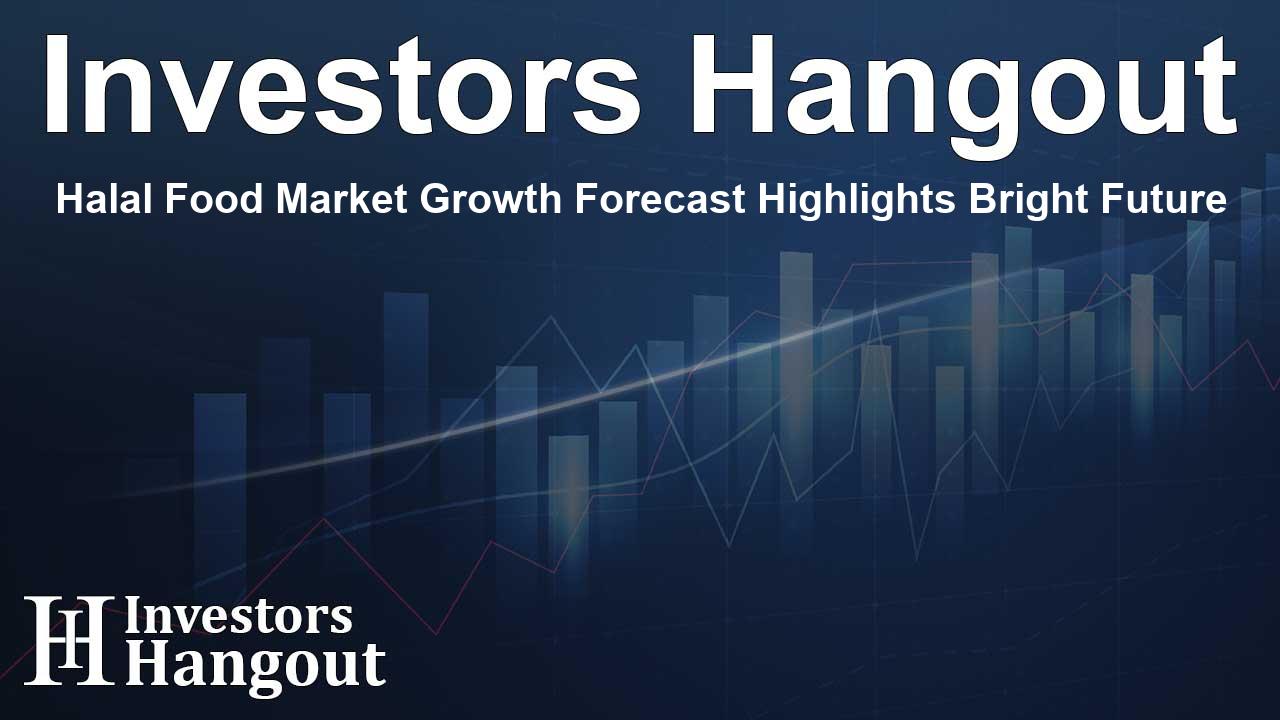Halal Food Market Growth Forecast Highlights Bright Future

Understanding the Halal Food Market
Halal food refers to items that adhere to Islamic dietary laws, which ensure that food is permissible and fit for consumption. The fundamentals of halal encompass specific requirements, including the avoidance of pork and alcohol, along with ethical slaughtering practices for meat. This approach not only resonates with Muslim consumers but has also surfaced as a preferred choice among non-Muslims who appreciate the high standards of hygiene and ethical production associated with halal foods.
Market Dynamics Driving Growth
Growing Muslim Population Fuels Demand
A significant factor influencing the halal food market is the burgeoning Muslim population, particularly visible in regions like Southeast Asia and Africa. The increasing diversity in these demographics has led to a heightened demand for halal products, prompting both Muslim-majority and non-Muslim-majority regions to embrace halal food. In nations such as Indonesia, where a substantial percentage of the population adheres to Islam, the halal market thrives, underscoring the need for halal certification to keep pace with consumer expectations.
Halal Food Tourism: A Rising Opportunity
The concept of halal food tourism is becoming increasingly relevant, with Muslim travelers prioritizing halal dining options when exploring non-Muslim-majority countries. As a result, several hotels and restaurants in popular tourist destinations are beginning to offer halal-certified meals. This trend signals a significant shift and presents a unique opportunity for the halal food sector to tap into the hospitality and tourism market, broadening its scope beyond traditional consumers.
Regional Market Analysis
The Asia-Pacific region stands out as the fastest-growing area for halal food worldwide. Countries like Indonesia, Malaysia, and Pakistan, with large Muslim populations, are driving this growth. Government initiatives aimed at boosting halal certifications and favorable export policies contribute to the market's expansion. Additionally, non-Muslim regions in this area see increasing demand as awareness of food safety and hygiene rises, making halal-certified products appealing.
Key Market Highlights
The halal food market has witnessed remarkable growth, with its value estimated at USD 2,303.76 billion in 2024. Forecasts indicate a rise to USD 5,232.86 billion by 2033, representing a compound annual growth rate (CAGR) of 9.56%. Various segments, including organic versus conventional halal products and different types of food (from meat and dairy to grains and beverages), play a crucial role in shaping this dynamic landscape.
Competitive Landscape
Numerous prominent players compete in the halal food space, among them Nestle S.A. and Cargill Inc., which have established a foothold in market segments catering to halal consumers. Their ongoing innovations and adaptations to emerging consumer needs help maintain their competitive edge, further bolstering the market's growth.
Recent Trends and Developments
In a notable development, Air India made headlines by altering its in-flight offerings to accommodate the diverse dietary requirements of its passengers. Shifting away from serving halal food to Hindu-Sikh travelers demonstrates the ongoing tensions and adaptations in the food service industry regarding dietary preferences and religious considerations.
Frequently Asked Questions
What is halal food?
Halal food refers to foods that are prepared according to Islamic dietary laws established in the Quran and Hadith, ensuring they are permissible for consumption.
Why is the halal food market growing?
The halal food market is experiencing growth due to the rising Muslim population, increased awareness of food quality and hygiene, and the popularity of halal food tourism.
What are the main segments in the halal food market?
The halal food market consists of various segments, including organic vs. conventional offerings and different product types such as meat, dairy, grains, and beverages.
Which regions are leading in halal food consumption?
The Asia-Pacific region, particularly Indonesia, Malaysia, and Pakistan, is leading in halal food consumption due to its large Muslim populations and supportive government policies.
Who are the key players in the halal food industry?
Notable players in the halal food industry include Nestle S.A., Cargill Inc., Al Islami Foods, and Unilever, among others, all contributing to the sector's growth and innovation.
About The Author
Contact Addison Perry privately here. Or send an email with ATTN: Addison Perry as the subject to contact@investorshangout.com.
About Investors Hangout
Investors Hangout is a leading online stock forum for financial discussion and learning, offering a wide range of free tools and resources. It draws in traders of all levels, who exchange market knowledge, investigate trading tactics, and keep an eye on industry developments in real time. Featuring financial articles, stock message boards, quotes, charts, company profiles, and live news updates. Through cooperative learning and a wealth of informational resources, it helps users from novices creating their first portfolios to experts honing their techniques. Join Investors Hangout today: https://investorshangout.com/
The content of this article is based on factual, publicly available information and does not represent legal, financial, or investment advice. Investors Hangout does not offer financial advice, and the author is not a licensed financial advisor. Consult a qualified advisor before making any financial or investment decisions based on this article. This article should not be considered advice to purchase, sell, or hold any securities or other investments. If any of the material provided here is inaccurate, please contact us for corrections.
